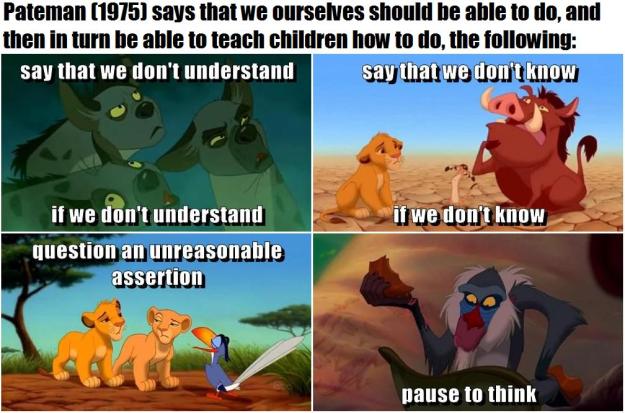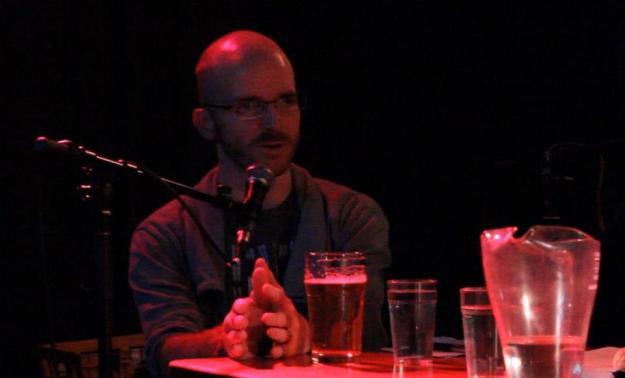In my last post I illustrated Trevor Pateman’s theories of teaching and learning with a Lion King-themed meme sequence. At tonight’s stella 2.0 workshop I continued reflecting on his radical notion that teachers should model the whole thinking process for their students, including suspicion, doubt and not-knowing. According to Pateman (cited by Boomer), teachers should: question an unreasonable assertion; say that we don’t understand if we don’t understand; pause to think; say that we don’t know if we don’t know. I took these in turn.
PAUSE TO THINK. What happens when a teacher pauses to think? In a culture of care and surveillance this seems like a risk. Look out the window and you’ve turned your back on the class. But anything’s better than not looking out the window.
SAY THAT WE DON’T KNOW. Euphemisms for I don’t know: I’ll get back to you; this can be a research project; let’s stay on task; does anyone else know the answer; that reminds me; which leads us back to the main idea; let’s hear from some other people; it’s time to work independently; quiet.
SAY THAT WE DON’T UNDERSTAND. My mother taught me two cliches: “you’re not late until you arrive late” and “people just want to hear I understand.” Teachers modelling confusion seems rare enough to be a taboo, but I do some of my best thinking when my friends make a perplexed expression. The blanker they look, the better I talk.
QUESTION AN UNREASONABLE ASSERTION. Assertions worth questioning: that English should be interesting; that English is dull; that Shakespeare is great; that Shakespeare is unreadable; that one person should speak at a time; that we should face the front; that we should pull up our socks; that we should wear socks; that a rule must have consequences; that consequences can be predicted; that the lesson is over.








